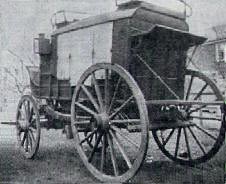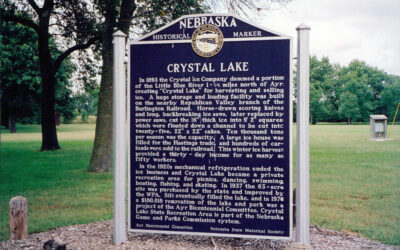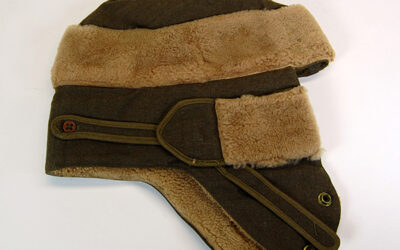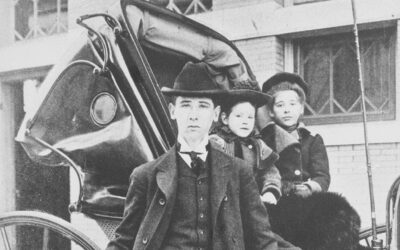Travel by stagecoach is an experience few modern Nebraskans have had unless as part of a frontier reenactment, but when Nebraska Territory was opened to settlement, the stagecoach was the principal overland means of public transportation. It continued to be an important means of travel for those without their own horses or teams prior to the coming of the railroad. Nebraska City freighter William Fulton in 1899 recalled his early experiences in Nebraska Territory that included more time spent in a stagecoach than he wanted.
In an August 18, 1899, letter to Jay A. Barrett of the Nebraska State Historical Society, Fulton noted: “I left St. Louis, Mo., in February, 1859, and came to Nebraska City by stage coach from St. Joseph, Mo. The ice being too soft to bear the weight of the coach the passengers walked across the river from the Iowa side.”
Fulton further noted that the rates for transportation of passengers during these early years were high and the wayside accommodations poor. “The Overland Stage Company in 1863 charged $75 fare to Denver and $150 to Salt Lake City, while in 1866 they got the price up to $150 to Denver and $350 to Salt Lake City. The baggage of each passenger was limited to twenty-five pounds and there was a charge of $3 for every extra pound. At $1 each, meals, consisting of bacon, bread, and coffee, with sometimes game, such as venison, antelope, or occasionally a sage hen, could be obtained. Butter and eggs were unknown luxuries at stage stations, the former selling in Denver at $1.50 per pound and the latter at the same price per dozen.
“We rode night and day in the stuffy, uncomfortable coach, journeying six days to reach Denver and eleven or twelve days to Salt Lake City, in marked contrast to the comfort, time, and cost of travel at present [1899]. At a cost of $14 the traveler is now carried in a Pullman car to Denver in twenty hours, and twice the time and $36 will take him to Salt Lake City. Should he prefer, he may make the round trip for one fare and a fifth, but in the old days a seat in the coach cost the same both going and returning, and its possessor reached his destination weary and travel worn. At that time a trip by stage was considered very grand, yet I have no desire to repeat the experience.”
In 1861 Mark Twain and his brother traveled west by overland stagecoach. In Roughing It, Twain described the coach as “a cradle on wheels” but welcomed the adventurous experience the trip provided. They rode “a-top of the flying coach, dangled our legs over the side and leveled an outlook over the world-wide carpet about us for things new and strange to gaze at. It thrills me to think of the life and the wild sense of freedom on those fine overland mornings!”

One type of the famous Concord stagecoach.
From J. Sterling Morton and Albert Watkins, History of Nebraska (1918).



